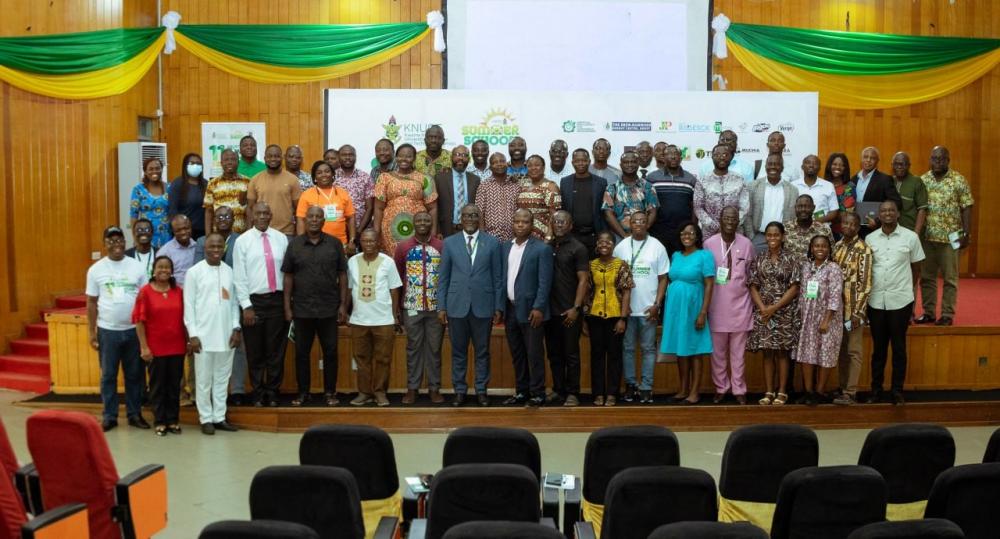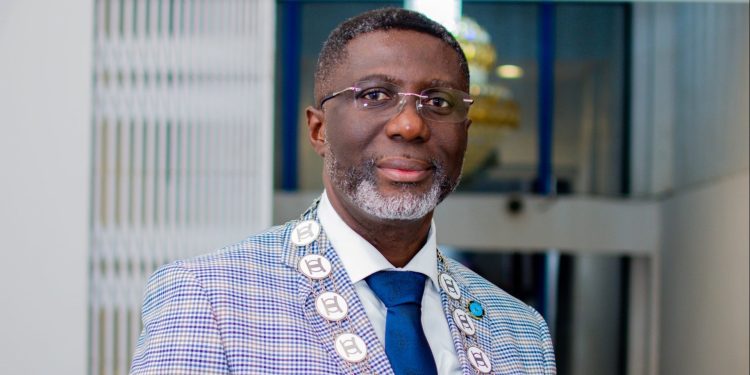The KNUST College of Engineering (CoE) ended its 11th Summer School with a resolve to leverage AI for quality engineering education. The session featured insightful presentations and practical demonstrations, highlighting AI's pivotal role in reshaping modern engineering workflows.
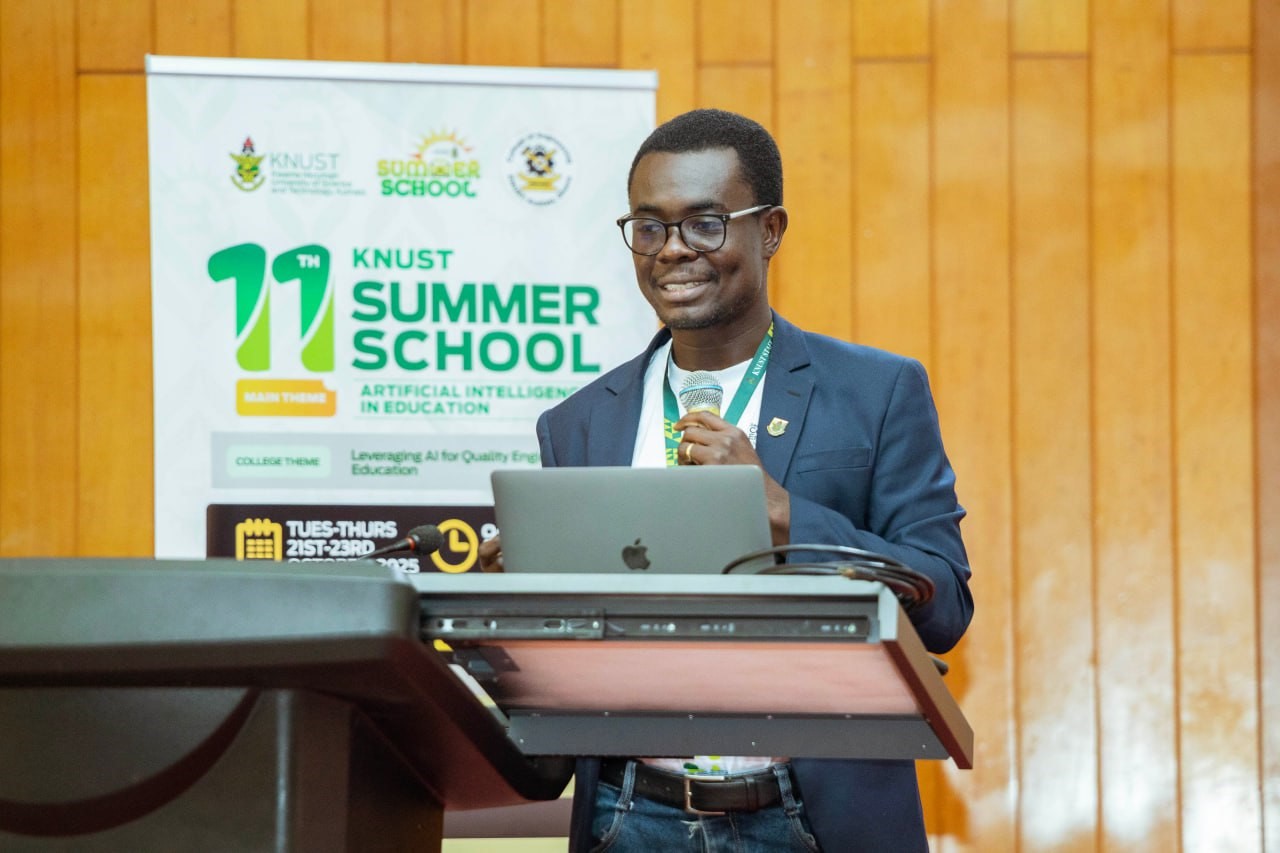
Prof. Emmanuel Kofi Akowuah, Head of the Department of Computer Engineering, with a compelling presentation on “AI in Engineering Research,” articulated the day's objective: to examine how AI revolutionises research methodologies through enhanced literature reviews, sophisticated data analysis, and advanced simulations.
Prof. Akowuah introduced a suite of powerful AI tools, including Elicit, Consensus, and Scite, which are redefining how researchers conduct literature reviews and manage scholarly information. He elaborated on AI's capacity to significantly accelerate research workflows, enabling more efficient collaboration, intelligent data analysis, and superior research outcomes.
“AI-driven simulations are a game-changer, significantly reducing computation time while improving accuracy and enabling the modelling of highly complex scenarios,” Prof. Akowuah stated.
He concluded with a powerful call for cross-disciplinary collaboration, urging other departments to share their AI experiences. “The future lies in collaboration,” he remarked. “Engineers define the problems, and AI assists in exploring innovative solutions.”
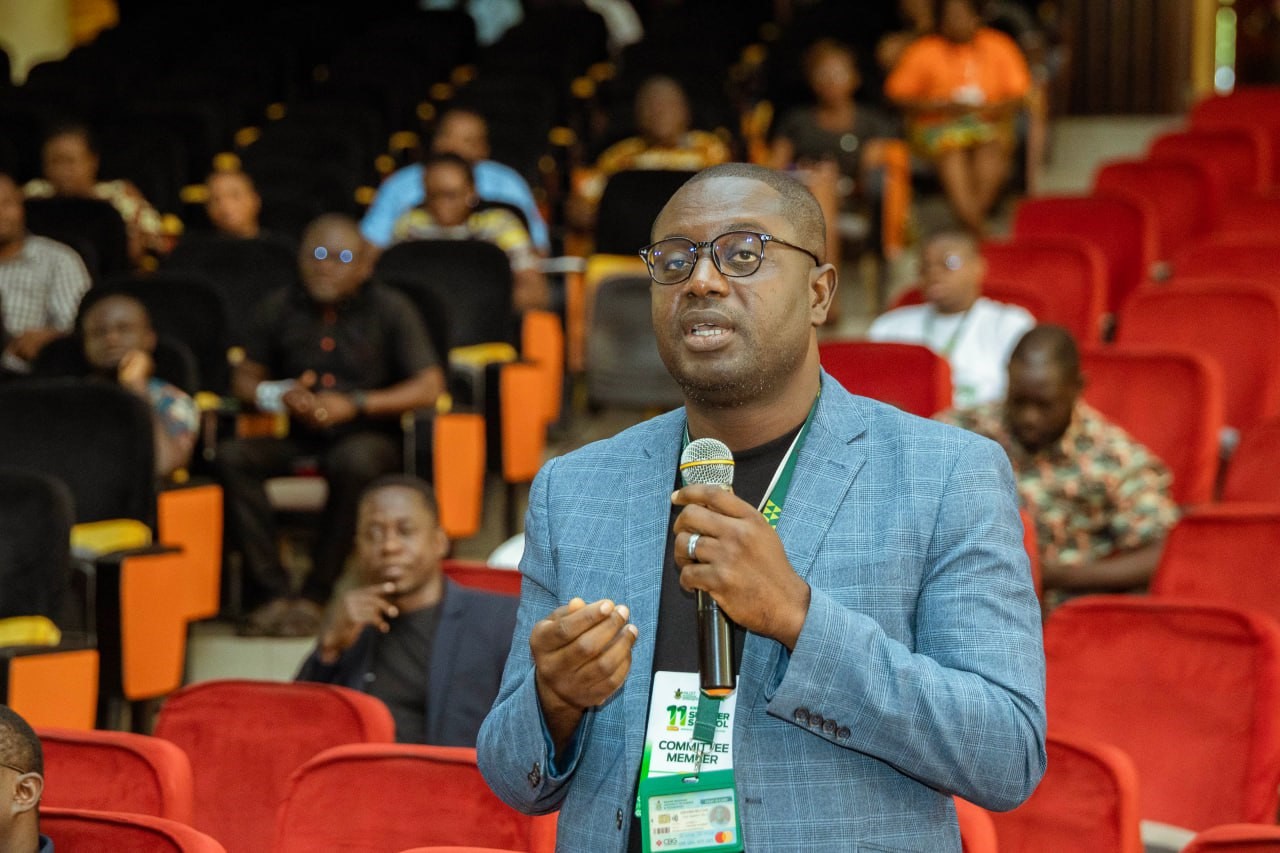
A vibrant question-and-answer session saw participants engage with AI adoption's ethical and practical dimensions. In response to concerns about AI potentially undermining the creative essence of research, Prof. Akowuah provided clarity.
“AI does not take research work from humans; it acts as a powerful scout, sifting through millions of research papers to narrow the focus to one's specific area of interest,” he explained. “It doesn't remove creativity; instead, it augments our intelligence, making us smarter and more efficient.”
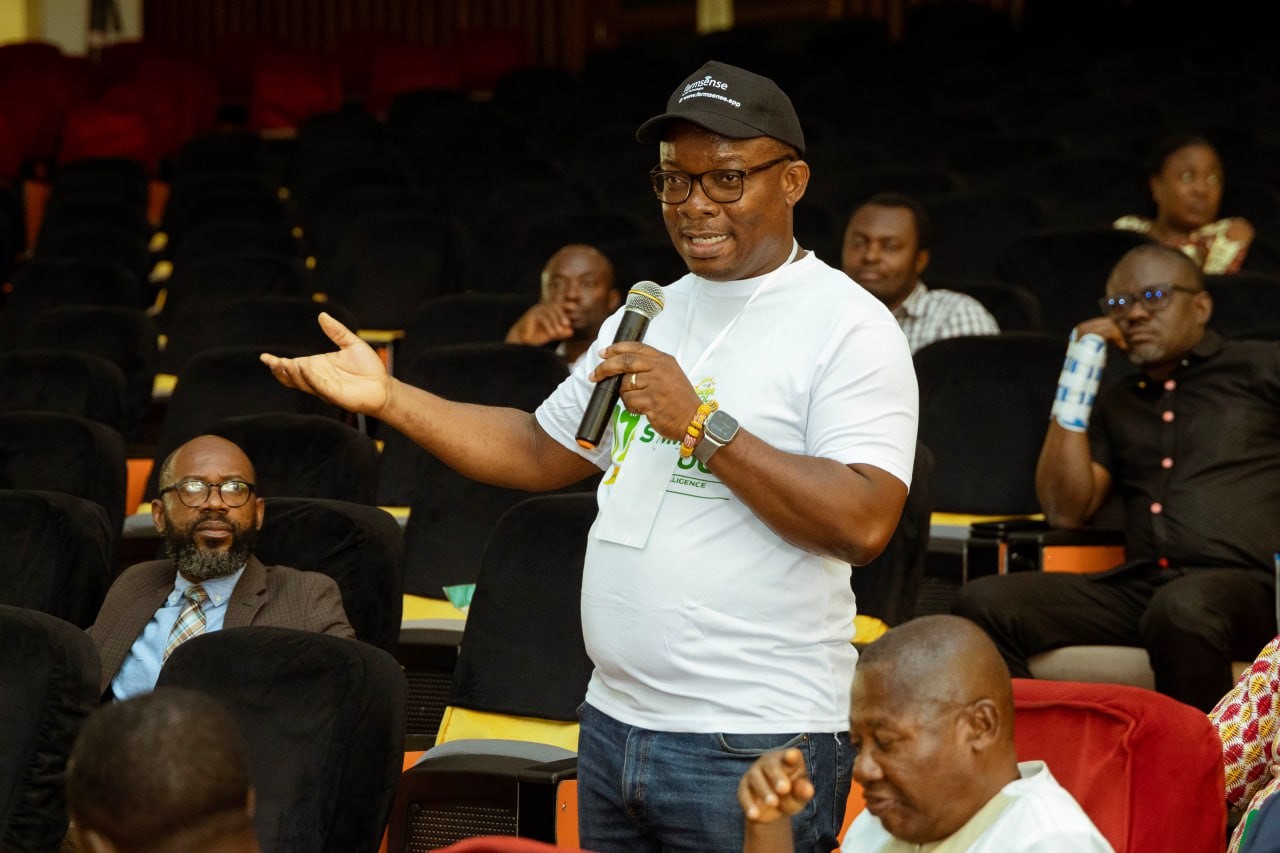
The discussion also touched upon the importance of local relevance, with participants highlighting the need for postgraduate research using AI to be grounded in locally sourced data to address specific societal challenges.
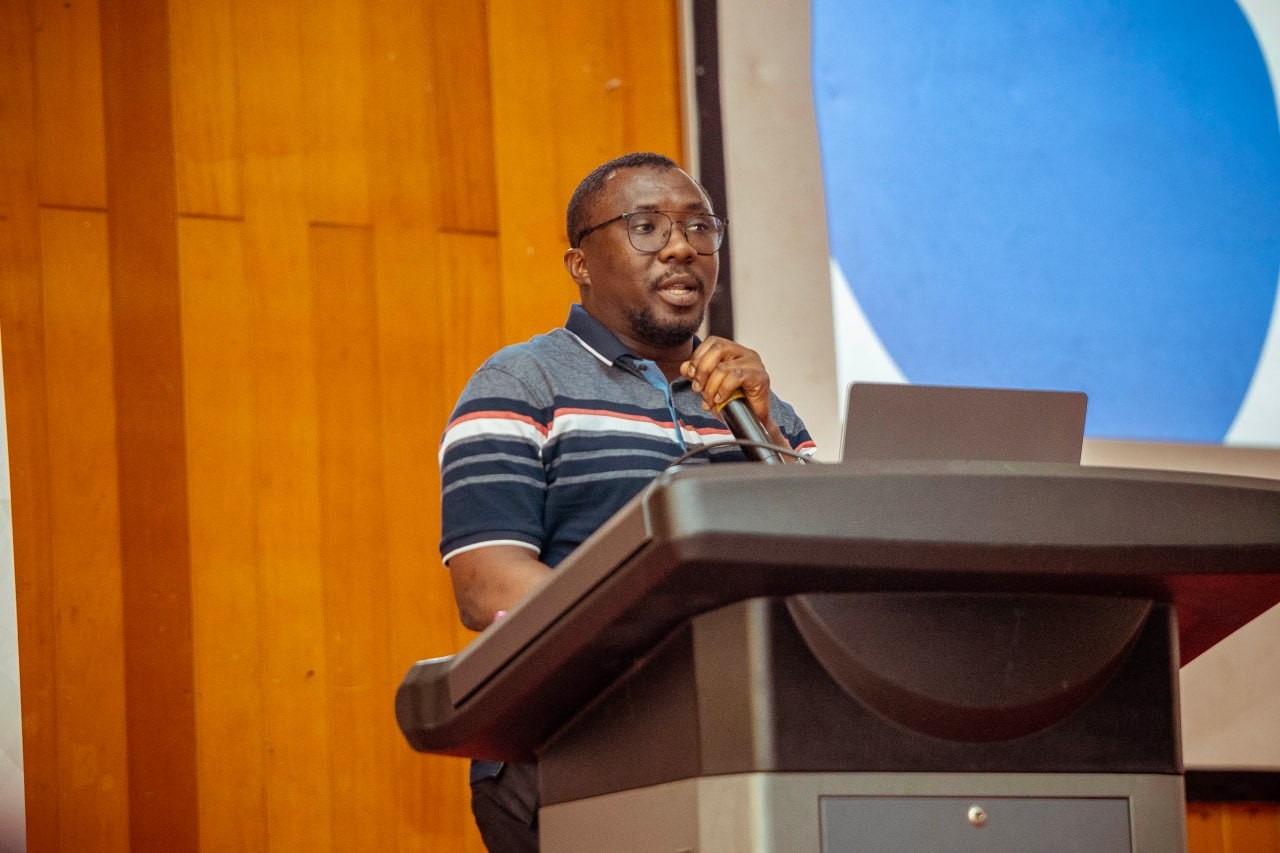
Following the theoretical discourse, Dr. Henry Nunoo-Mensah, AI in Health Theme Lead at the Responsible AI Lab (RAIL), led an immersive hands-on session. He demonstrated how tools like Elicit, Semantic Scholar, and Research Rabbit can streamline the literature review process. Furthermore, Dr. Nunoo-Mensah showcased the application of Google Colab for practical data analysis, reinforcing the concept of AI as a productivity multiplier.
“It is crucial to see AI not as a replacement, but as a tool designed to enhance our capabilities and productivity,” Dr. Nunoo-Mensah reiterated.
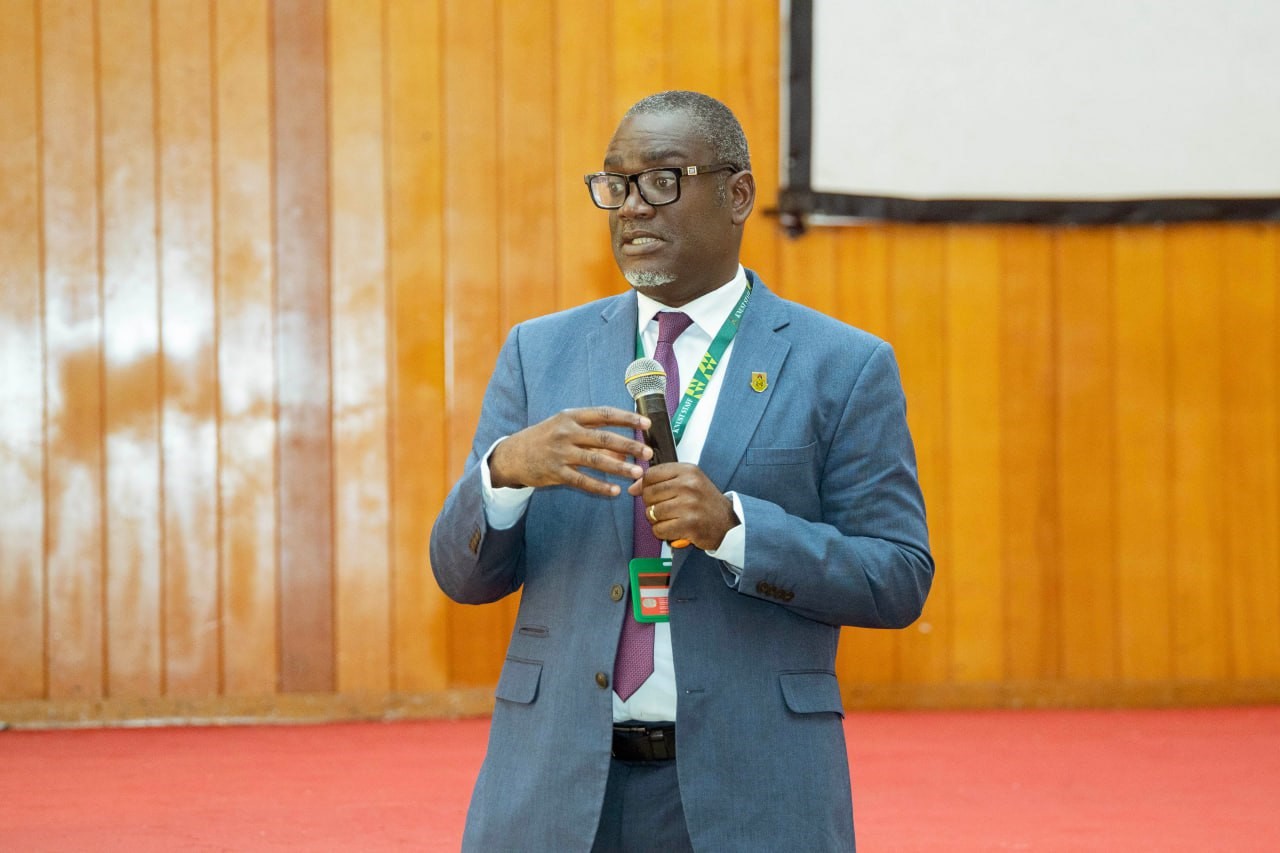
In his closing address, Prof. Kwabena Biritwum Nyarko, Provost of the College of Engineering, commended the organisers for a successful and insightful event. He recapped the key takeaways, noting the demonstrated potential of AI to assist in preparing lesson notes, optimising engineering tasks, and the critical importance of prompt engineering.
“The hands-on sessions were particularly insightful. We need more practical, skill-based training to harness AI's potential fully. I have therefore tasked the team to facilitate more hands-on sessions in the future,” Prof. Nyarko stated.
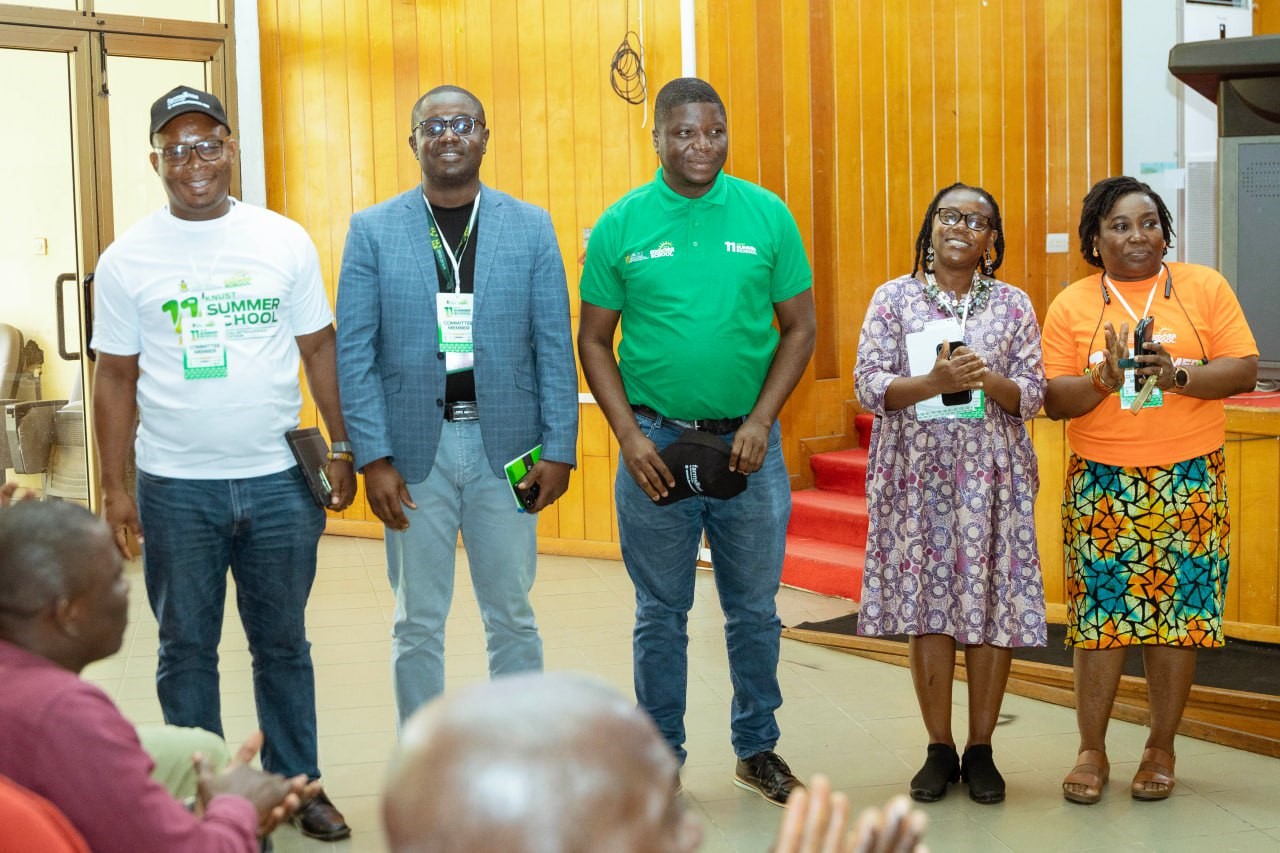
The Provost applauded the College of Engineering team for a timely and impactful programme, reinforcing KNUST's commitment to staying at the forefront of technological innovation in education.
The 11th Summer School on AI in Education has firmly established a roadmap for the College of Engineering to integrate AI as a fundamental tool, empowering its staff and students to achieve new academic and research excellence heights.


